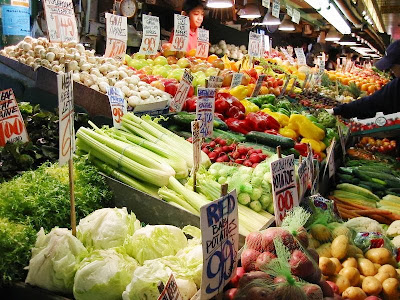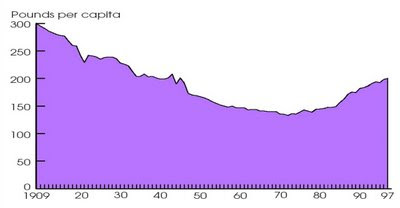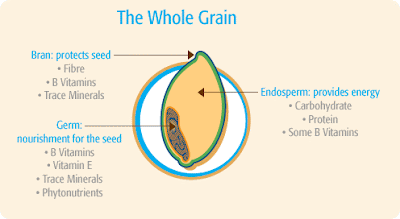While my posts have been sporadic at best over the past 7 years, my blogging efforts for the months to come will be found elsewhere.
For those of you who just stumbled upon this blog, here are the 3 most popular posts over time:
Many people write looking for a vegan-friendly PCP or Lifestyle Medicine MD. Some potential leads are here:
http://www.lifestylemedicine.org/search
http://www.pcrm.org/
https://eu-lifestylemedicine.org/member-directory/
From my clinical experience, the first issue mentioned in this post - not eating enough calories - is the most common problem and is one that can be easily addressed if recognized. The common pattern is someone who switches to a vegan diet, loses a few pounds, feels fantastic at first but as the weeks and months go by they continue to lose too much weight or feel fatigued. Essentially, they need to learn how to eat more calories and monitor for weight periodically.
Dr. Furhman, one of the few docs with extensive clinical experience in this realm, also cites a need for some of his patients to supplement zinc, DHA/EPA and in rare cases possibly taurine, iodine, vitamin k2. Dr. Greger cites a rare Carnitine deficiency caused by a genetic disorder that might be unmasked by a vegan diet here. These are worth considering if other measures fail.
While cutting out a good 1/3 to 1/2 of your diet and replacing it with plants requires some learning for most people, it's definitely a doable (and highly worthwhile) challenge. But for those who struggle, don't revert back to the standard awful diet that is the norm. In the least, eat as many vegan meals as you can during the week and you'll be making a great difference in all realms. Sometimes, compromise is the answer. Adaptation takes a different time course for us all.
But for now,
Much love to you all,
And thank you for all you do to make this a better world,
Mark
For those of you who just stumbled upon this blog, here are the 3 most popular posts over time:
The #1 Favorite: How Can Vegans Be Overweight?
Eliminating animal foods is one step in a healthy direction, but for many it's not the only step that is needed. This post explores a few reasons why people eating a vegan diet can still struggle with their weight. So what to do if you're still struggling? Find a vegan-friendly dietitian to work with and consider slowly picking up serious weight training or running. If that fails, a lifestyle medicine doc might be a good ally.Many people write looking for a vegan-friendly PCP or Lifestyle Medicine MD. Some potential leads are here:
http://www.lifestylemedicine.org/search
http://www.pcrm.org/
https://eu-lifestylemedicine.org/member-directory/
The #2 Runner Up: Why SOME People Struggle With A Vegan Diet
Each year, tens of thousands of people are inspired to go vegan out of deep concern for animals, the environment and their health. Sadly, the majority of those return to a regular diet of animal foods. Yes, it can be hard to not eat like everyone else and the effort of going out of your way to find vegan options can become hard to sustain for many. But some don't feel they are thriving on a vegan diet. Why is that? It's a topic that's almost never discussed, but one I encounter in clinic periodically and explore in this post. And no, the answer is not because we need to eat meat or combine proteins!From my clinical experience, the first issue mentioned in this post - not eating enough calories - is the most common problem and is one that can be easily addressed if recognized. The common pattern is someone who switches to a vegan diet, loses a few pounds, feels fantastic at first but as the weeks and months go by they continue to lose too much weight or feel fatigued. Essentially, they need to learn how to eat more calories and monitor for weight periodically.
Dr. Furhman, one of the few docs with extensive clinical experience in this realm, also cites a need for some of his patients to supplement zinc, DHA/EPA and in rare cases possibly taurine, iodine, vitamin k2. Dr. Greger cites a rare Carnitine deficiency caused by a genetic disorder that might be unmasked by a vegan diet here. These are worth considering if other measures fail.
While cutting out a good 1/3 to 1/2 of your diet and replacing it with plants requires some learning for most people, it's definitely a doable (and highly worthwhile) challenge. But for those who struggle, don't revert back to the standard awful diet that is the norm. In the least, eat as many vegan meals as you can during the week and you'll be making a great difference in all realms. Sometimes, compromise is the answer. Adaptation takes a different time course for us all.
The #3 & Original Post: The Fears Of A Suspecting Vegan. Answered.
Having been vegan for about 24 years, I have encountered innumerable health concerns borne of fear and propaganda along with every possible iteration of "You're vegan?!? Well, where do you get your protein/nutrients/vitamins/etc?". That inspired me to start a blog for some general responses. In this first post, I tried to spell out from my vantage point which things do actually warrant some attention. There's no reason to have fear on the menu, but there are a few important nutritional items those on a vegan diet should head. The list is much longer for those not on a vegan diet, and those can be found elsewhere.Want More?
I highly recommend Dr. Greger's site - NutritionFacts.OrgThanks Thanks Thanks!!!
Thanks to you for taking time to read my blog and share both feedback and your appreciation. Can't say how much that has given me over the years. Eventually, I'll get back to blogging more on these and other related topics.But for now,
Much love to you all,
And thank you for all you do to make this a better world,
Mark














